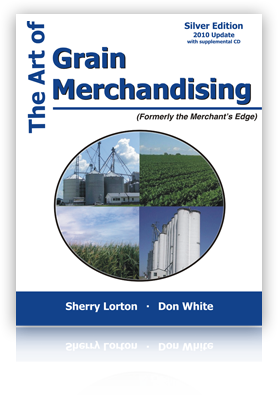Poker or Chess?
The grain business deals with a lot of numbers – yields, bin capacities, prices, basis, spreads, moisture, supply, demand, and more. Along with the...

The volatility in production, futures prices, basis, and spreads of the last few years have caused many of us to abandon the idea of a “normal” merchandising environment, or at least change the definition of “normal” to mean a volatile market. Grain merchandisers have had their share of stress and risk, but volatility has also created opportunity, leading to some of the best margins ever. As much as things have changed, and require us to change with them, navigating this environment successfully also demands that basis traders rely on some of the basic skills they started with.
What is the same?
The need for disciplineThe tools to generate margins
You still have only three tools to generate your grain margins – buy basis, sell basis, and spreads. Efficient management of these three tools will still produce profitable results.
The power of fellowship
It can be easy, especially in a volatile market, to feel isolated. Getting together with fellow merchants in person, on the phone, or online has always been powerful and it is even more so now. At the very least you will know that everyone is facing the same challenges, more likely you will find answers to your challenges and help other find answers to theirs.
What is different?
Awareness is no longer optional
For many years, price, basis, and spreads moved in small enough ranges and predictable enough patterns that it was possible to be consistently profitable, if not highly successful, running a grain business on autopilot. That is most certainly not the case any longer. It is hard to be successful as a part-time basis trader. Things move too quickly and opportunities arise and disappear in a flash, often at different times than they used to. Success demands a high level of awareness.
Timing is flexible
We are learning that in a volatile environment, things can and do happen at any time. For example, it used to be a truism that you bought fall crops in the fall and sold them in the winter, spring, and summer. In many cases this year, the time to buy fall crops was a year before harvest, and the time to sell them was right during the middle of harvest. This presents a mental struggle for many. After all, harvest is the time to buy, not the time to sell, right? You must be mentally agile in this environment. Being enslaved to old habits or ideas of the “right time” to do things will lead to missed opportunities or worse.
Changing markets demand changing practices
As the marketplace becomes more global and new buyers emerge in unexpected places, you must be flexible in your approach to merchandising. You may find yourself selling crops you normally hold on to, or holding on to crops you normally sell. Old standby buyers may become irrelevant as new buyers emerge, or you may deal with a dozen buyers instead of one or two. Most of us do not find change comfortable, but this environment demands of us the willingness to change and pursue opportunity where it is, not where we want it to be.
Cash is King
As grain prices have increased and stayed high, so has the need to manage capital and cash flow in the grain business. A good relationship with a banker who understands your business is a great start, but it takes more than that. Basis trading skills, a high level of awareness, and the ability to be flexible will allow you to line up your capital with the best opportunities. There must be a conscious effort to control money needs and focus on the areas of highest return.
Focus is vital
As price, spreads, and basis gyrate, it is tempting to constantly ask “why?” The danger of this question is that as you gather information, news, and opinions about local and global happenings, there is a high likelihood of “analysis paralysis.” None of us are capable of processing all available information into a coherent strategy, so as information grows, the ability to make decisions shrinks. We must learn to stay focused on the things we can control and exercise a high level of control over those things. When focus on a few simple things is combined with awareness of opportunity, money management, and the mental
flexibility to act whenever opportunity presents itself, all the other “stuff” in the marketplace will take care of itself or fade into irrelevancy.
As we deal with the challenges of a volatile market, it’s exciting to realize that while the execution and timing may change, the same skills that we have been using in calmer markets will help navigate us through volatile ones as well. We just need to stay focused, stay disciplined, and pay attention.

The grain business deals with a lot of numbers – yields, bin capacities, prices, basis, spreads, moisture, supply, demand, and more. Along with the...

People often ask why they should read this book and the answer is quite simple, because merchandising skills changes people’s lives. You may think...
 Read More
Read More